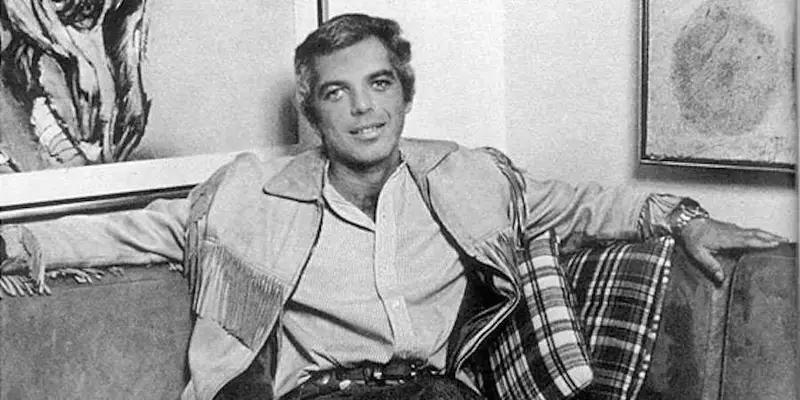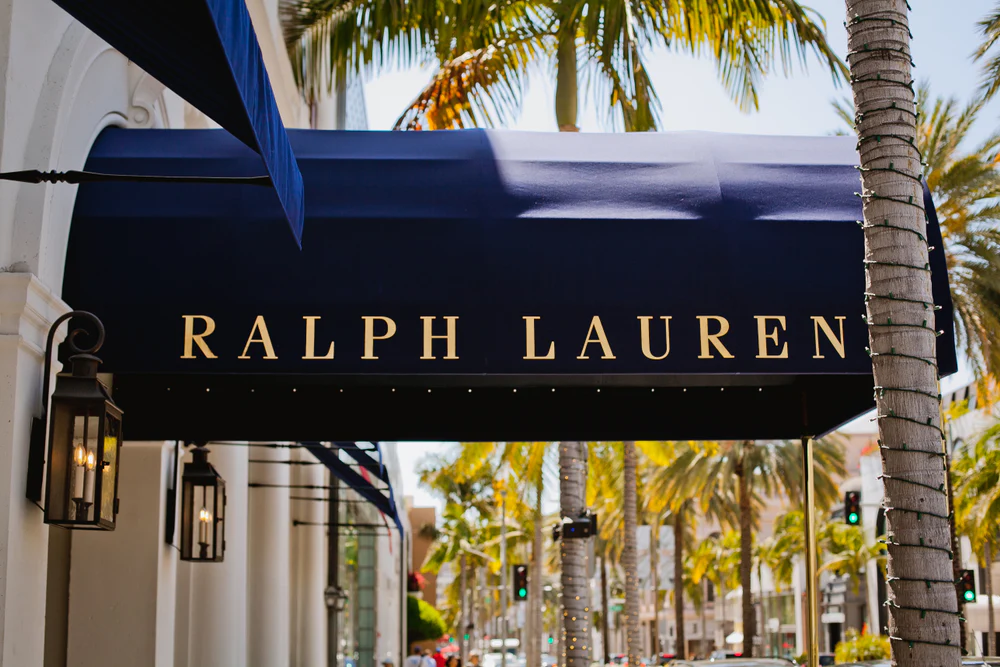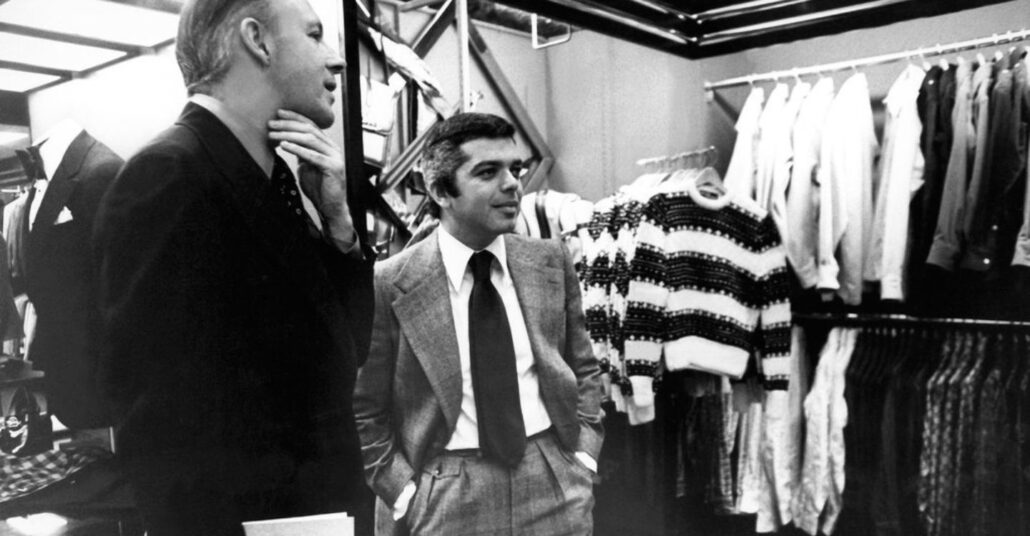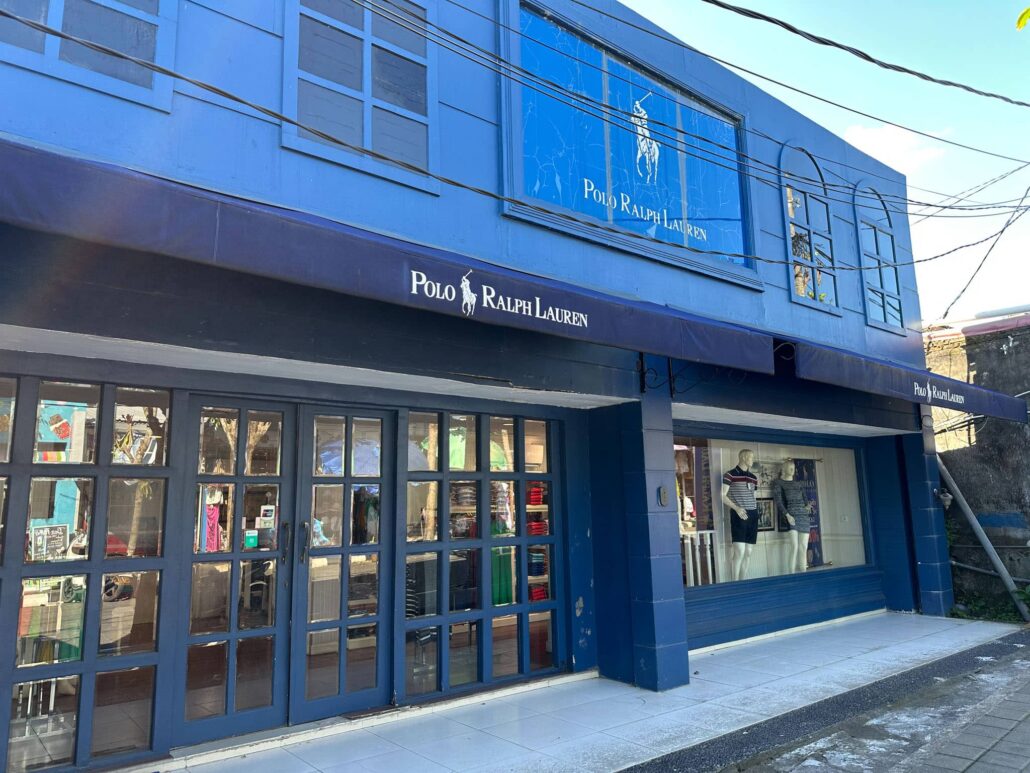Imagine strolling down Seminyak’s boutique-lined streets when suddenly you spot a Ralph Lauren shop.
You step inside expecting classic preppy polo shirts and leather handbags, but here’s the catch – the famous American brand has never officially set foot in Bali, nor the whole of Indonesia, in fact. And yet, there they are!
Welcome to Bali’s version of luxury, where logos live lives of their own!
The Story Behind Ralph Lauren In Bali
If you’ve ever wandered through Seminyak, Kuta, or Ubud and spotted a gleaming Ralph Lauren store, your first instinct might be to rejoice.
Finally, a slice of classic American preppy luxury in paradise. Step inside, and you’re greeted by neatly stacked polos, handbags, and accessories, the full luxe package.
It looks convincing. Too convincing, actually. Because here’s the punchline: none of it is official. Not a single one of those stores is affiliated with Ralph Lauren.

How It All Started
The story begins in 1986 with a loophole big enough to fit an entire fashion empire through. A businessman named Mohindar H.B. bought the rights to the “Polo Ralph Lauren” trademark in Indonesia from a man named John Whiteley.
The deal was registered with Indonesia’s Directorate of Patents and Copyrights, which meant that, on paper, Mohindar had the legal right to use the name inside the country. The twist? Ralph Lauren, the American company, had never trademarked its brand in Indonesia.
What looked like an oversight back then opened the door for decades of copycat stores that feel official, but aren’t.
A Walk Through Bali’s Polo Stores
Step into Seminyak, Kuta, or even Ubud, and you’ll see them: polished Ralph Lauren storefronts, often styled like colonial mansions or glossy boutiques you’d expect to find in Singapore or New York.
Mannequins wear polos, handbags line the shelves, and staff greet you in smart uniforms. At first glance, everything appears to be real.
But start browsing and little details give it away, a horse logo stitched a little off, handbags made from odd materials, or clothing tags that look like they time-travelled from the 1990s. It’s part theatre, part retail, and somehow very Bali.

The Tourist Experience: Real or Not?
For many travellers, spotting a Polo Ralph Lauren shop in Bali feels like finding a slice of home. Tour drivers sometimes hype them up, pointing out the shops as must-see destinations.
Families wander in, kids tugging at racks of colourful shirts, parents trying to decide whether the prices match the promise. The real fun isn’t even in buying, it’s in guessing. Is this polo shirt authentic? Are these sunglasses real?
Some customers walk out with bags of bargains, while others leave laughing, snapping photos for Instagram captions about “Polo Ralph Lauren, Bali edition.” Either way, it’s entertainment disguised as shopping.
The Business Side of Things
Behind the glossy shop windows is a story of intellectual property rights and stubborn entrepreneurship. Because of that 1986 trademark registration, these shops operate in a strange legal comfort zone.
Ralph Lauren Corporation has challenged the claim multiple times, but Indonesian law has upheld the local ownership. Shops continue to sell Polo Ralph Lauren products, imitation products, packaged with outdated marketing materials and presented as luxury. For businesses, it’s a profitable niche.
For consumers, it’s confusing. And for the global fashion world, it’s a textbook example of how trademarks, patents, and copyrights work very differently depending on the region.

Why It Matters (and Why It’s So Bali)
The existence of Bali’s Ralph Lauren stores says something bigger about the island itself. Bali has always been a melting pot where cultures, ideas, and businesses blend, sometimes beautifully, sometimes chaotically.
Here, a brand logo isn’t just a trademark; it’s a story, a spectacle, and even a bit of a joke. The authenticity may be questionable, but the experience is unforgettable.
Tourists may leave with counterfeit goods or simply a funny anecdote, but either way, they’ve brushed up against Bali’s playful, unpredictable energy. And that, more than any polo shirt, is what they’ll remember.
Polo Ralph Lauren Products In Bai
The shelves inside Bali’s Polo Ralph Lauren stores are filled with all the classics you’d expect: polos, shirts, handbags, belts, and even the odd watch.
At first glance, it feels like you’ve struck gold. But pick them up, and the discrepancies start showing. A logo might be slightly off-centre, the stitching a little loose, or the packaging straight out of another decade.
Some other items feel surprisingly good, and it’s difficult to tell them apart from real items; others are more like market stall specials.
For many tourists, the fun isn’t really in buying, it’s in spotting the oddities and deciding what feels real, what feels fake, and what makes the perfect quirky souvenir.

Polo Ralph Lauren Stores in Bali
Across Seminyak, Kuta, and Ubud, the Ralph Lauren name pops up in grand façades that could fool even the savviest shopper.
These aren’t dusty knock-off stalls, they’re full-fledged boutiques with marble floors, tidy displays, and staff dressed like they’re ready for Fifth Avenue. Tour operators sometimes steer families there as “must-visit” shops, and drivers earn small commissions for dropping tourists off.
It’s a retail illusion on a big stage: walk in expecting the real Polo Ralph Lauren experience, and instead you step into one of Bali’s most enduring quirks.
Legal Action And Imitation Brands In Bali
Yes, the brand has attempted to challenge the local ownership of its trademark, but with limited success. Indonesian law upholds the rights of the local owners, leaving Ralph Lauren with little ability to enforce its presence in the country.
This situation is not unique to Bali; across parts of Asia, similar gaps have allowed imitation brands to flourish. The quality of products can vary widely, so customers need to choose carefully.
While it may appear official, it’s important to comment on apparent discrepancies and remember that buying from these stores is different from purchasing authentic items elsewhere.
Mistakes in assumptions about authenticity are common, which is why awareness is key.
FAQs
Are These Ralph Lauren Shops Legal?
The stores operate in a grey area.
Intellectual property rights, trademarks, and patents aren’t always enforced locally, and customs often overlook small-scale imitation goods. The shops thrive because the Asian market, Bali tourists, and travel companies continue to show interest.
Can I Take Counterfeit Goods Out of Bali?
Technically, Indonesian customs law prohibits the export of counterfeit goods, including imitation Polo Ralph Lauren products.
There’s a big difference between casually bringing a couple of shirts home for personal use and filling a suitcase with dozens of fake products for resale; the latter carries a much higher risk of fines, confiscation, or even legal trouble.
Small souvenir-type purchases sometimes slip past customs unnoticed, but there’s no guarantee. Many tourists treat these buys as novelty items to enjoy while on the island rather than investments to bring back. It’s safest to expect that Ralph Lauren goods in Bali may not be authentic and plan accordingly.
Can I Buy Ralph Lauren Products That Are Real in Bali?
Not really. Official Ralph Lauren stores in Bali are non-existent, and the so-called Polo Ralph Lauren shops you see on the island are locally owned and not affiliated with the brand.
If you want genuine Ralph Lauren products, the safest options are international websites, official brand boutiques in nearby countries, or authorised retailers who can guarantee authenticity.
While Bali’s stores may look convincing, the products range from imitation to decent knock-offs, so shoppers should not expect to buy the real deal on the island.
Why Are There So Many Ralph Lauren Stores in Bali?
The sheer number of stores is tied to the trademark loophole from 1986, which allowed local owners to use the Polo Ralph Lauren name legally.
Over the years, entrepreneurs recognised the opportunity and opened multiple outlets across Seminyak, Kuta, and Ubud. Tourists, drivers, and tour operators fuel the market, often treating these shops as essential stops for shopping or souvenirs.
While the stores give the impression of a global brand presence, it’s largely an island-specific phenomenon. The proliferation highlights how a limited legal claim, clever business sense, and Bali’s bustling tourist scene can combine to create a uniquely local retail spectacle.
Final Thoughts On Ralph Lauren Bali
Bali’s Ralph Lauren shops are less about fashion and more about the story you take home. They’re a playful slice of island life: audacious, funny, and unexpectedly charming.
Whether you’re a collector, a tourist hunting souvenirs, or just someone who enjoys the absurd, stepping into one of these stores is a reminder of Bali’s unique energy: creative, cheeky, and willing to blur the lines between reality and reinvention.
The clothes may or may not be authentic, but the experience is 100% Bali.
